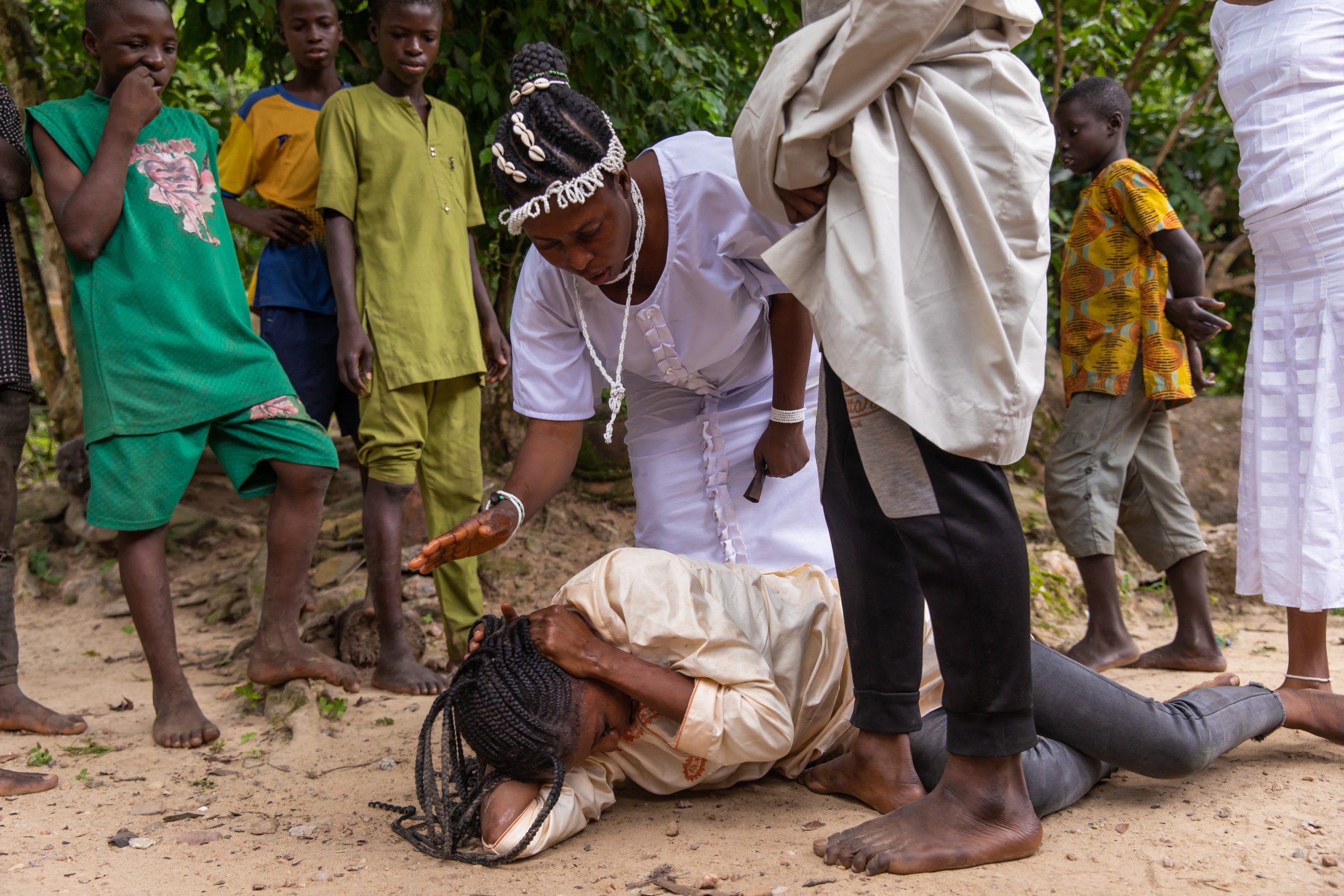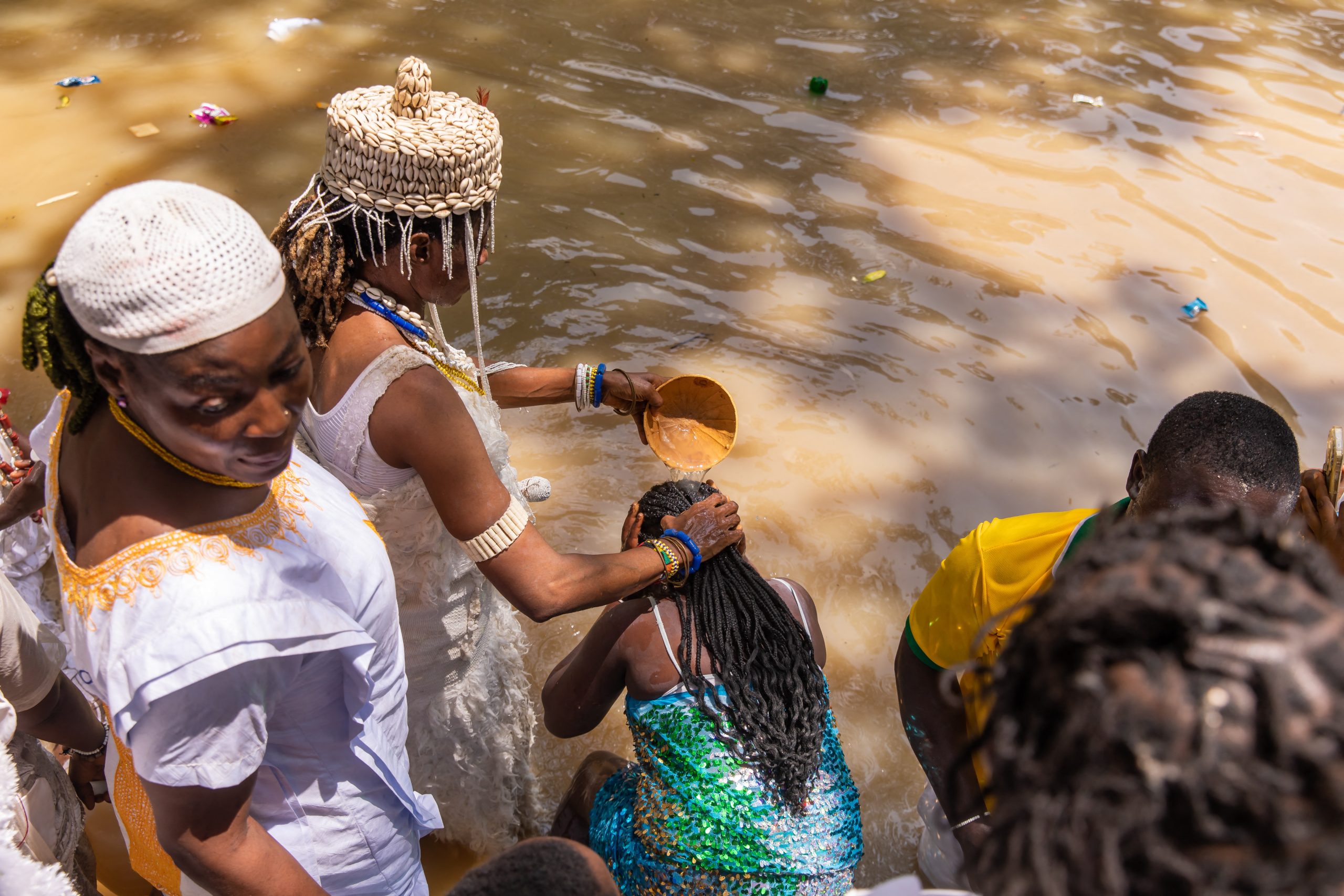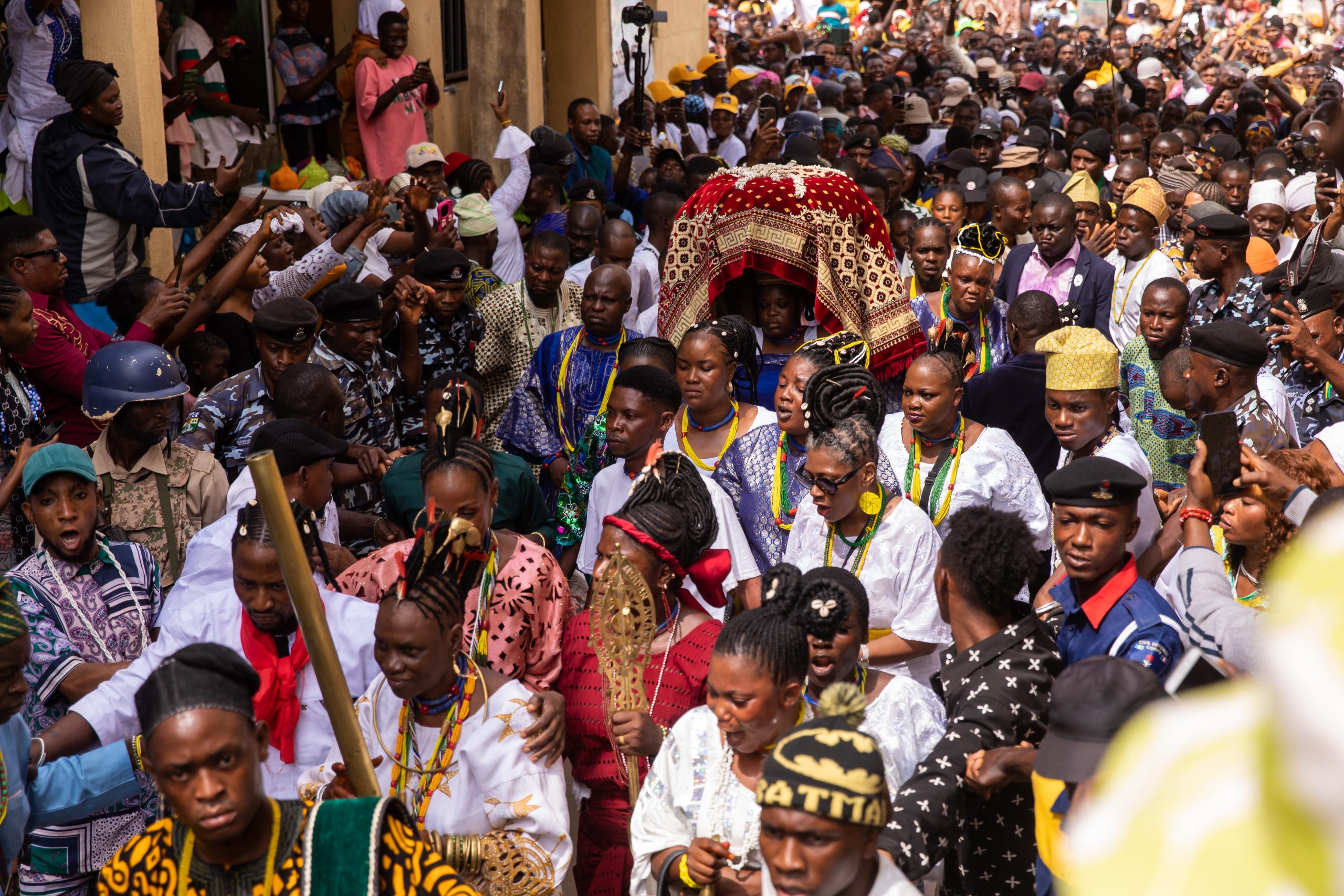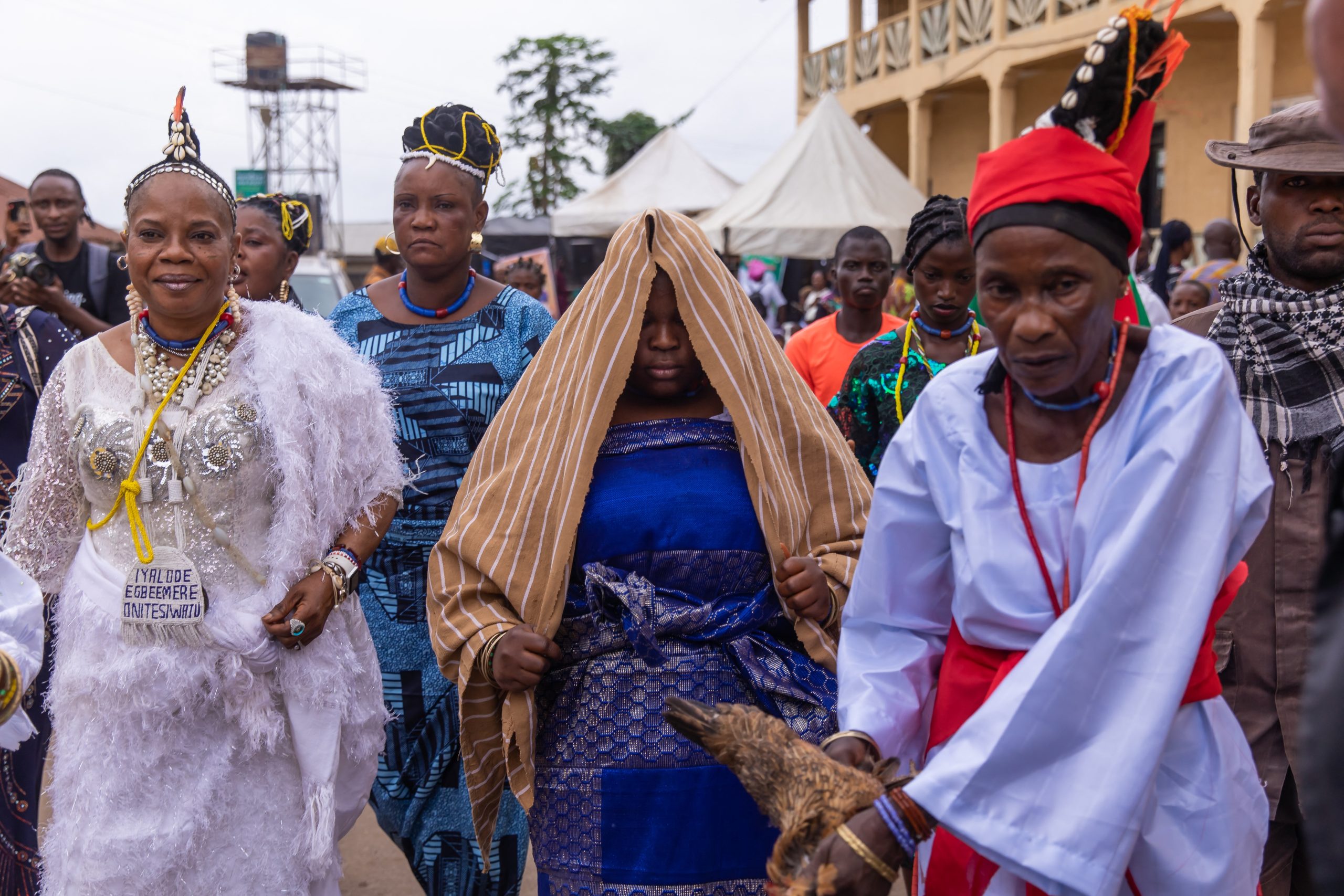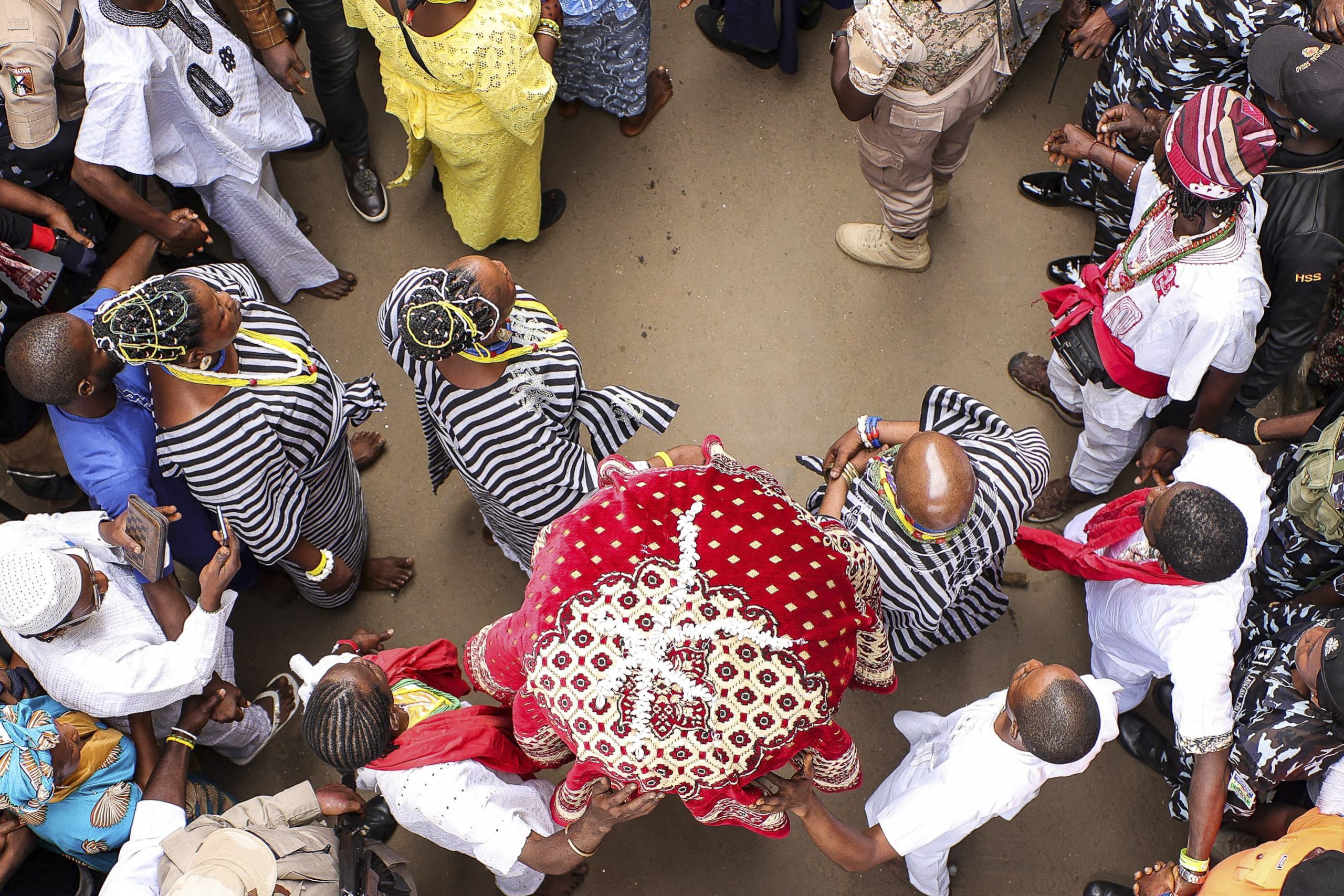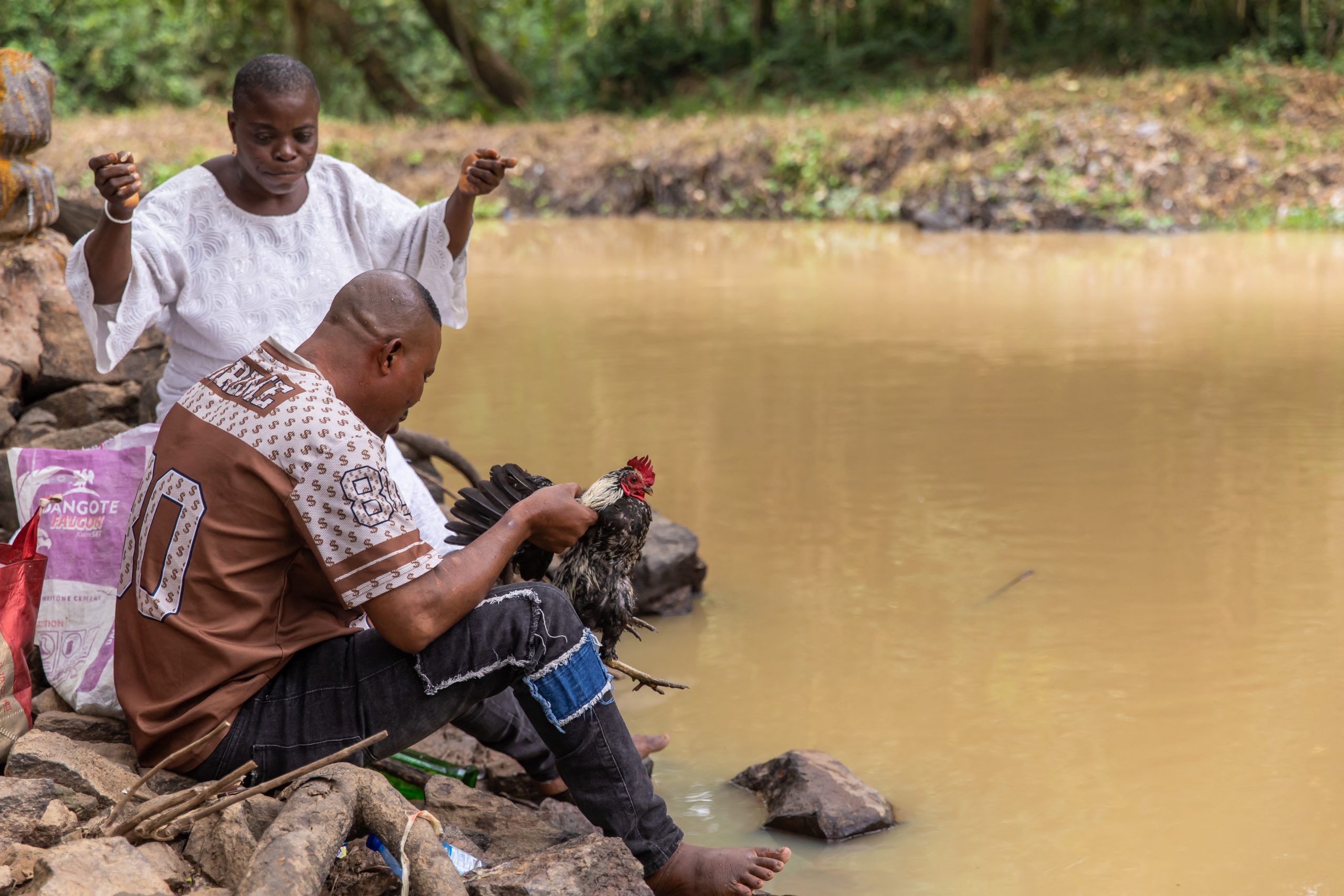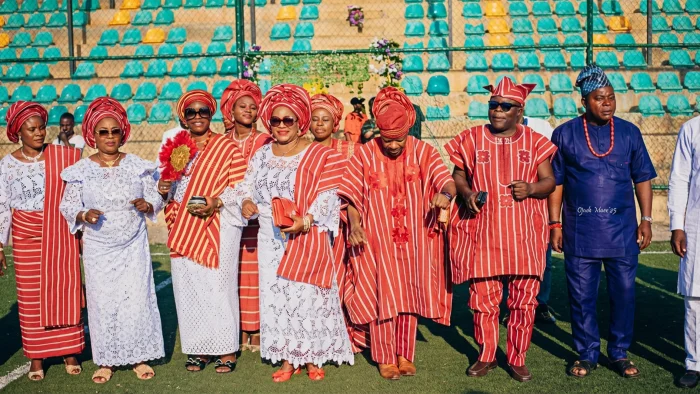Every August, Osogbo transforms into a living shrine where drumming meets devotion, art meets ancestry, and thousands gather to honour Osun, goddess of water, fertility and love. Here’s how to experience the festival with wonder, respect and ease.
In August, every year, the quiet city of Osogbo in southwestern Nigeria comes alive with rhythm, rituals, and reverence during the Osun Osogbo Festival, a two-week celebration honouring Osun, the Yoruba goddess of water, fertility, and love.
At the heart of the festival lies the Osun Sacred Grove, a 75-hectare forest along the Osun River, believed to be the spiritual home of the goddess. With a history spanning over 700 years, the festival is a time of cleansing, reunion, and deep spiritual reflection. It begins with rituals to purify the city and reconnect its people to their ancestors, the founders of the Osogbo kingdom.
One of the most iconic moments of the festival is the Arugba procession. A young virgin from a royal family carries a sacred calabash filled with offerings and walks from the palace, with a crowd in tow, to the grove in a solemn, powerful display of devotion and tradition.
The festival has become a major global cultural event, attracting tourists, researchers, spiritual pilgrims, and lovers of African heritage from all over the world. For Nigeria, it’s a tourism goldmine, and for visitors, an unforgettable cultural experience.
Whether you’re attending for spiritual reasons, cultural exploration, or pure curiosity, preparing well will help you fully enjoy the Osun Osogbo experience. You need to have an understanding of how to navigate the festival with ease and respect, without defying the culture and tradition, especially if you are not an indigene.
What to wear
While there’s no strict dress code, modesty is appreciated. Avoid over-revealing outfits. Light, breathable clothing is ideal. Many locals wear Aso-ebi or all-white attire, symbolising spirituality and purity. If you want to fully immerse yourself, consider getting a traditional or an all-white outfit from a local market.
Expect larger crowds and long walks. Closed shoes or comfortable sandals are best for walking around the grove and uneven ground.
What to bring
The sun can be quite intense in August, when it isn’t raining, so stay protected and comfortable. Carry a refillable water bottle to stay hydrated. A hand fan or mini rechargeable fan will help with the heat, especially in crowded areas. Have enough cash for food, souvenirs, or transport.
A hat and sunscreen will shield you from the sun, and a power bank will keep your phone or camera charged. However, remember that not everything should be photographed. Some rituals and spiritual items are sacred. Always ask before taking pictures, especially of people, ceremonies, or objects related to spirituality. To keep your belongings safe, a small crossbody bag or waist pouch is more secure than a handbag or backpack.
Where to stay
Accommodation during the festival season is usually in high demand, so book ahead. Options range from budget guesthouses to mid-range hotels. Some visitors opt for homestays to connect more deeply with the community. If Osogbo is fully booked, nearby cities like Ile-Ife or Ibadan are alternatives, though you need to commute daily to the festival grounds.
Getting to Osogbo is straightforward. Once in town, taxis, tricycles (keke), and motorbikes (okada) are widely available. During main events, however, roads near the sacred grove and palace may be blocked off to manage large crowds, so be prepared to walk. If it’s your first time attending, joining a tour group can help you better understand and navigate the experience.
Things not to miss
There are several unmissable highlights. The Arugba procession is the spiritual heart of the event and draws the largest crowds. Visiting the sacred grove, even outside of the main ritual days, offers an incredible view of Yoruba art and spirituality in one of Nigeria’s most serene natural settings.
Traditional drumming and dancing take place throughout the festival, showcasing Yoruba culture in its most energetic form. The opening city-cleansing ritual is also a powerful spiritual event that marks the beginning of the festivities.
While attending, be mindful of cultural etiquette. Respect is at the core of the celebration. Avoid interrupting rituals or taking part in activities without understanding their meanings. Sacred items and spaces should not be touched. If you’re unsure about anything, it’s best to observe quietly or ask a local for guidance.
The Osun-Osogbo Festival is a deep, immersive experience into Yoruba heritage and spirituality. Whether you’re attending as a tourist, a researcher, or someone seeking a deeper connection to African tradition, this festival offers a meaningful and unforgettable journey. Come with curiosity, respect, and an open mind, and you’ll leave with memories that stay with you long after the drums have faded.
See photos below:
